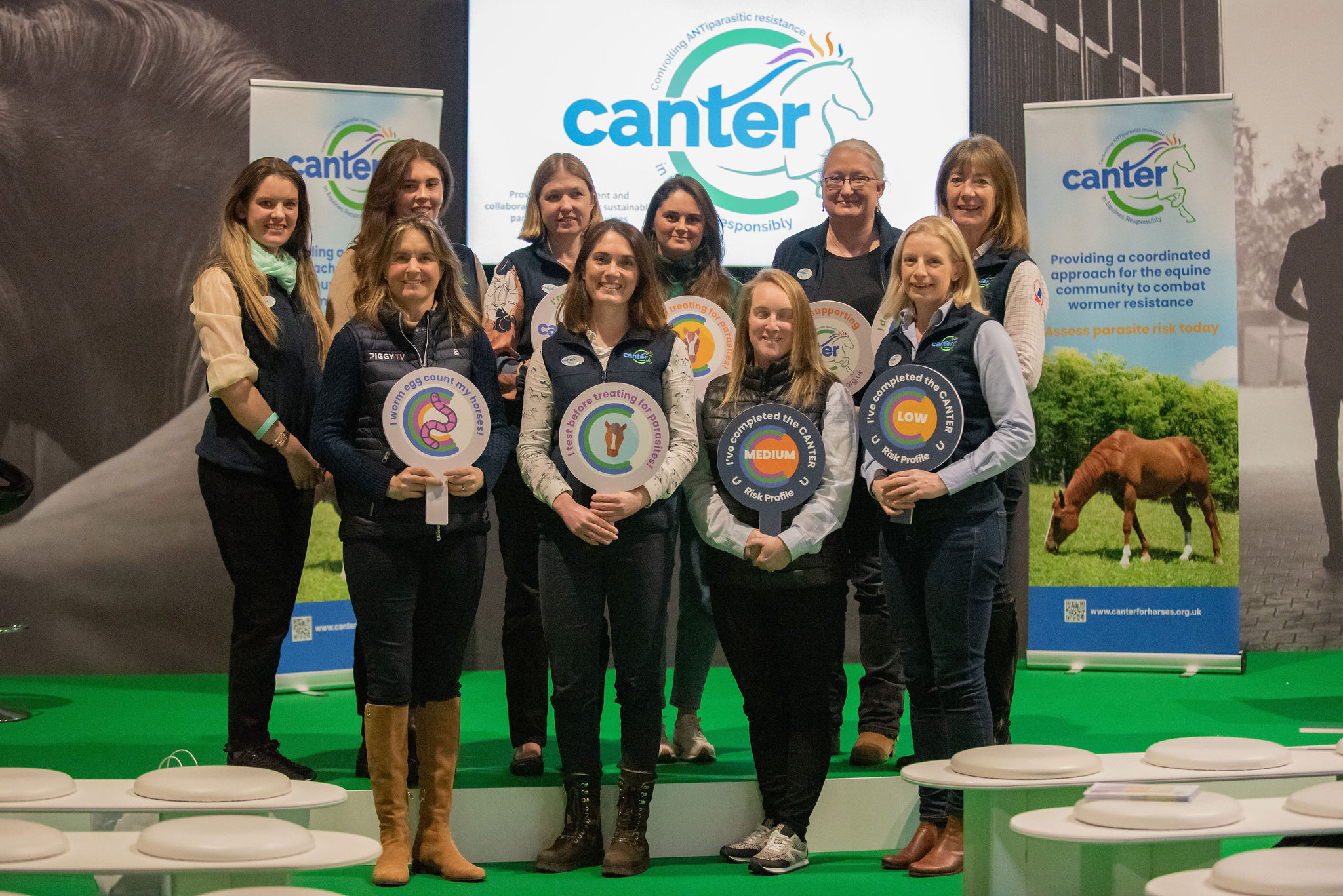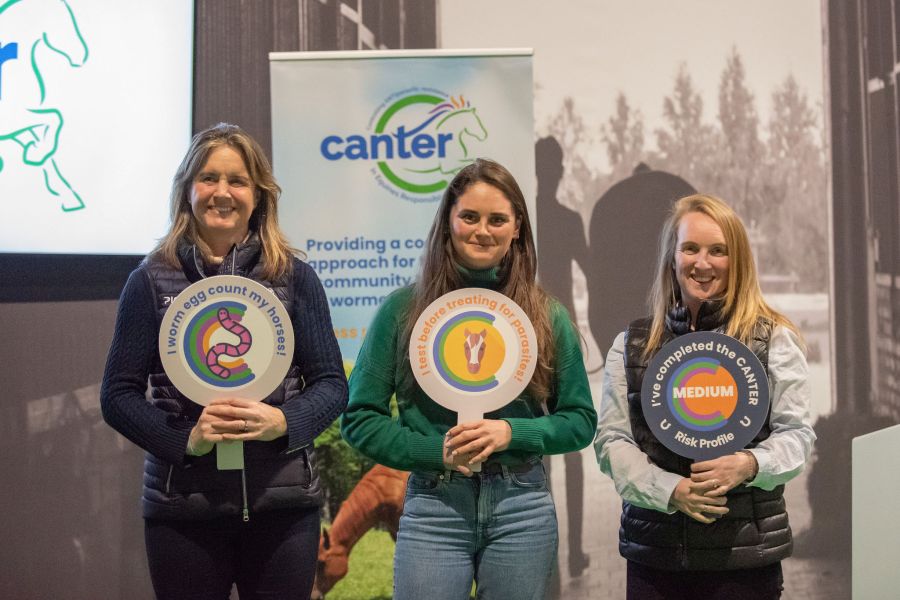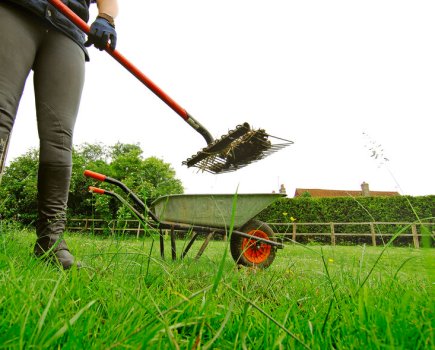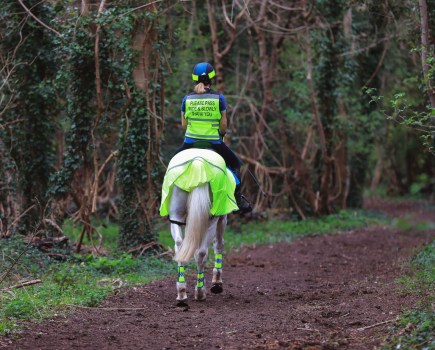Eventer Piggy March supported a new campaign to combat wormer resistance in horses at the National Equine Show on 4 March.
CANTER is a new pan-industry group – the first of its kind worldwide – and has been formed to tackle the increasing threat that wormer resistance poses to horse health.
Their aim is to support a consistent approach to parasite control across the equine community and to become a ‘single source of truth’ on issues related to antiparasitic resistance in equines, an area that has traditionally seen some mixed messaging.
Badminton and Burghley winner Piggy was joined at CANTER’s National Equine Show stand by trainer and influencer Miri Hackett and international endurance rider Anna Bridges (pictured left to right in the lead image).
“I am supporting the CANTER initiative, which aims to reduce the threat worms pose to our horses,” said Piggy. “It is more important now than ever to ensure we are future proofing our equine population in the UK.”
Bringing experts together

Pan-Industry representatives gather for the launch of CANTER
The term CANTER stands for ‘Controlling ANTiparasitic resistance in Equines Responsibly’. The group brings together voluntary representation from the widest reaches of the equestrian sector. These include leading experts in the field across prescribers, diagnostic providers, pharmaceutical companies, trade organisations, technical experts, horse owners, charities, and policy makers.
The formation of the group was masterminded by Dr Claire Stratford from the Veterinary Medicines Directorate.
“We’ve come so far in a short time and that’s down to the passion that so many people have brought to this project,” says Claire, who leads the Core Steering Group. “It’s really exciting to be working with experts and key opinion leaders to make progress on this serious issue. I hope that CANTER will raise awareness and stimulate action across the equine community towards sustainable parasite control.
“Our aim for CANTER is to become the trusted source of information for prescribers and horse owners, and to facilitate informed discussion about this important aspect of horse health.”
The group’s key goals
At its outset, CANTER is prioritising four strands of activity:
- Best practise guidelines will be published before the end of 2023 to give prescribers evidence-based guidance and information on sustainable, responsible, and practical strategies for parasite control.
- Faecal egg count guidance will be produced to inform protocols on collecting, processing, and interpreting the results and promote the effective use of diagnostic and monitoring tools.
- A research arm has been formed to identify knowledge gaps and opportunities.
- A communication strategy is being developed to disseminate this information.
Assess your horse’s risk
A free profiling resource has been developed. The Parasite Risk Table and infographics are intended to highlight the broad range of factors that influence a horse’s parasite risk.
Working through the risk factors of the CANTER acronym: Clinical history, Age profile, Number of horses, Test results, Environment to give an overall parasite Risk profile, the aim is to provide an easy assessment tool to categorise horses as low, medium or high risk of parasite infection and disease, and to discuss appropriate action with their prescriber.
To download the free parasite risk profile, visit canterforhorses.org.uk.
Check out our subscription offer








